Working mom earns master's degree in communication online to advance her career
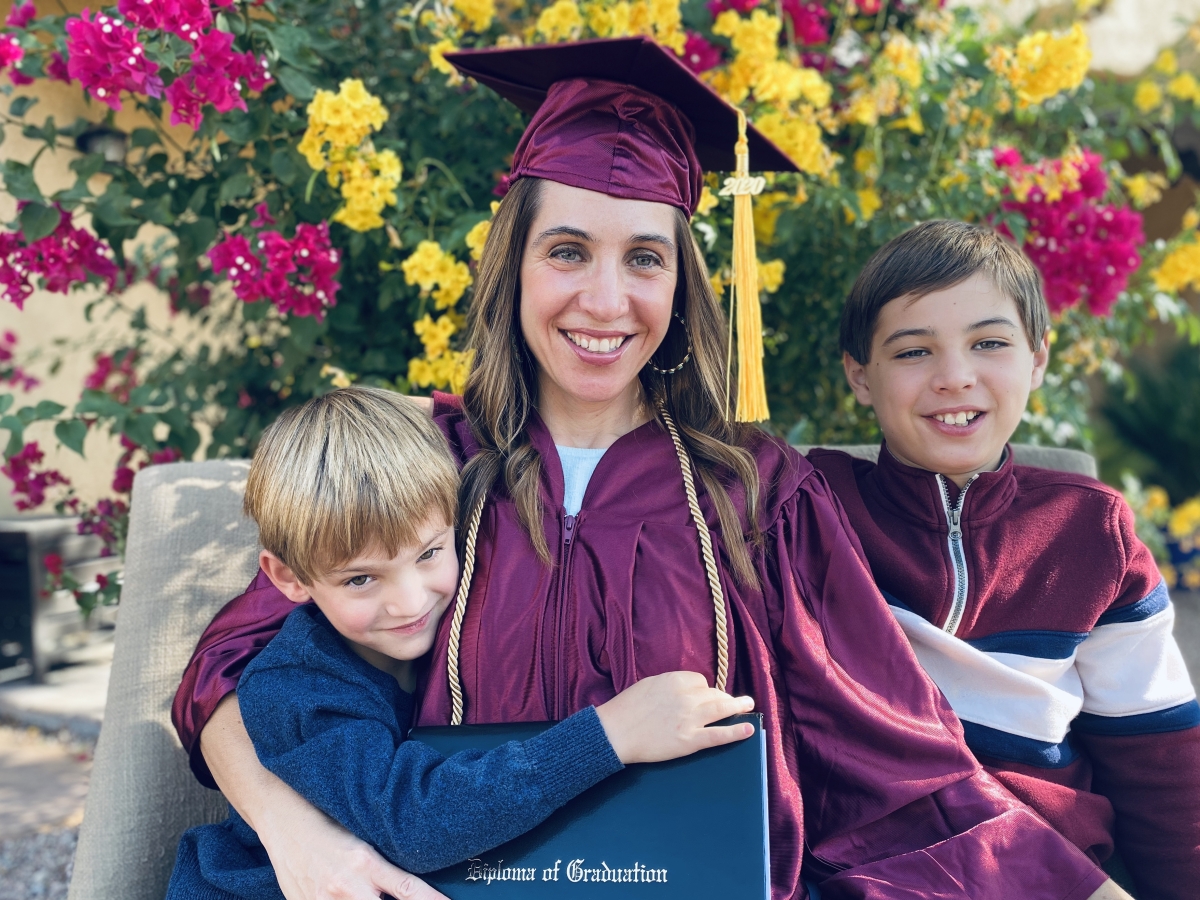
Briana Seward with her children.
Editor's note: This story is part of a series of profiles of notable fall 2020 graduates.
As a single parent of two young boys, Briana Seward would wake up hours before her children to complete her coursework for the Online Master of Arts in Communication program in the Hugh Downs School of Human Communication at ASU.
“When you are driven by your passion, it is the reason you jump out of bed in the early hours of the morning,” said Seward, who is also executive director of the Autism Society of Southern Arizona (ASSA).
Seward is typical of many students in the popular online program who juggle their education, their jobs, and their family responsibilities.
“The Online MA in Communication program is geared towards the working professionals who seek to become more competent communicators and more valuable members of their organization,” said Raena Quinlivan, director of the program. “The rigorous graduate coursework we offer applies to the day-to-day functions of the contemporary workplace, much like Briana’s organization.”
Seward’s capstone project helped parents find solutions during the COVID-19 pandemic.
“Briana was clear in her vision, and used the opportunity working with me to help this vision become reality,” said Lori Bednarchik, an instructor at the Hugh Downs School and Seward’s mentor. “Working with her was fun and inspiring. I was continuously impressed with how she was able to take small suggestions and turn them into epic changes that resulted in a program that can and will be immediately implemented. I'm so excited to witness the amazing things she will do, and I'm happy that she is part of our Hugh Downs School family. She will represent our program and the caliber of students we graduate fantastically!”
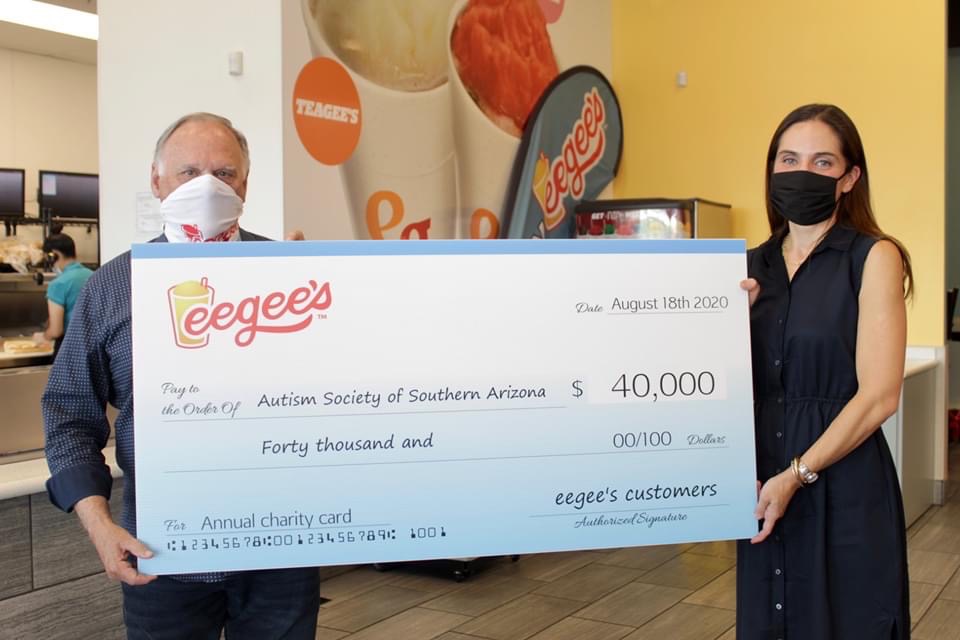
In August, the Autism Society of Southern Arizona, where Seward is executive director, was
the recipient of an Eegee's Restaurant Coupon Card fundraiser. In addition, ASSA also received
a $20,000 COVID-19 relief grant from the Community Foundation of Southern Arizona.
Seward says these funds have helped her organization weather this storm and continue to
provide support and virtual program options for families in need.
We asked Seward, who will be graduating from ASU in December 2020, to answer a few questions about her experience in the program:
Question: What do you like about your job, executive director of the Autism Society of Southern Arizona?
Answer: Connecting with the autism community and providing relevant resources is my purpose, and I know it can be a life-changing act. There is no better feeling than helping a parent breathe a sigh of relief once you have provided the next step for them after their child has received an autism diagnosis.
Q: What was your "aha" moment, when you realized you wanted to study Communication?
A: In 2018, I was a trainee at the University of Arizona’s Leadership Education in Neurodevelopmental and Related Disabilities (ArizonaLEND) leadership training program. Members of my cohort and my mentor developmental pediatrician, Dr. Sydney Rice, inspired me to continue my education and obtain my master’s degree in an area that would support my role in the nonprofit sector.
Q: What made you choose ASU?
A: I graduated from ASU with a bachelor’s degree in journalism in 2001 and that year moved to New York City to pursue a career in the magazine industry. As an ASU alumna, I have an allegiance to the university and while researching programs, I found ASU’s online degree program to be one of the nation’s most innovative and rewarding.
Q: Is there an ASU faculty member who was particularly influential?
A: At the beginning of my program, Dr. Ashley Gimbal was incredibly encouraging and accessible. She helped guide and shape my experience at the beginning of my journey. During my capstone project, Dr. Lori Bednarchik championed my work and challenged me to make my project “epic.” These professors played an influential role in my success and made this a gratifying experience.
Q: What were the most useful classes you took?
A: I believe every human should take Communication and Conflict Transformation. It opened my eyes to not view conflict as an uncomfortable situation but to attempt to make it a transformative experience by seeing the issue from the other’s perspective. I was in awe during the Communication and Gender course, which revealed the existing gender disparities in the workplace. I learned how to lean in through reading Sheryl Sandberg’s work and find my seat at the table.
Q: How did this program help prepare you for your current career?
A: My capstone project was a needs assessment for families affected by autism during the pandemic. The data revealed that parents were struggling and overwhelmed with the demands of caretaking and working from home in this “new normal”. What I learned through the research helped position our organization to meet the direct needs of families and positioned us for the future. As a result of the research, ASSA offered virtual programming options to families in need to improve outcomes in trying times. Our organization knew exactly what families needed based on the results of the needs assessment. As a result of my capstone, I was able to evaluate the needs of ASSA and offer an immediate solution.
Q: What's something you learned while at ASU — in the classroom or otherwise — that surprised you, or that changed your perspective?
A: I learned more about perspective-taking, investigating how the world operates, and how to think critically. I surprised myself in terms of what I was capable of and through the completion of each course felt more confident in my abilities. Having the opportunity to participate in weekly discussions was one of the most enriching experiences. Dialogue through the course discussion groups provided fresh viewpoints from people around the world and challenged me to find my voice.
Q: If someone gave you $40 million to solve one problem on our planet, what would you tackle?
A: There is no shortage of opportunities that one can attempt to solve if given $40 million. In my role as the executive director of ASSA, I would designate those funds to the autism population as I am aware of the needs. I would provide funding to low-income and underserved autism families that are financially stressed with the cost of therapies. I would help schools increase their resources for their special education departments. I would be ecstatic to hand over a check to Intermountain Academy so they can complete an autism-friendly sensory park in downtown Tucson so families can join one another to build community.
More Arts, humanities and education
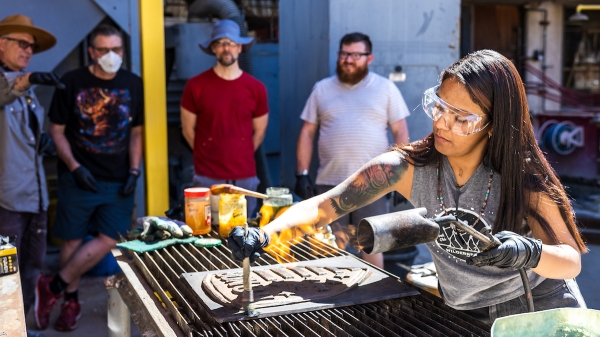
'Devils in the Metal': ASU vet leads iron cast workshop for former service members
Bruce Ward believes everyone has a symbol of strength or resilience, and they have an obligation to find it. His happens to…
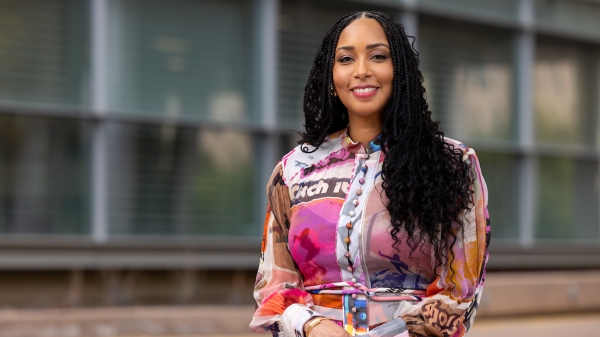
ASU English professor wins Guggenheim Fellowship for poetry
The awards — and opportunities — keep piling up for Safiya Sinclair, an associate professor in Arizona State University’s…
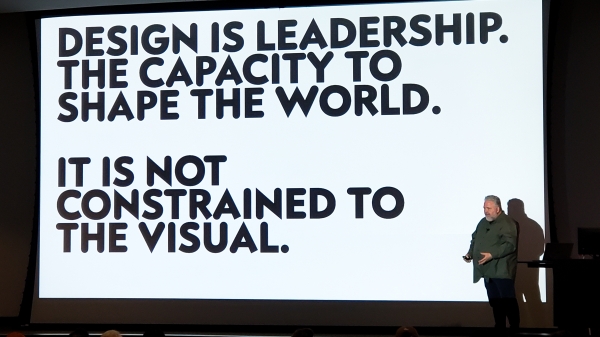
Designer behind ASU’s brand named newest Herberger Institute Professor
Bruce Mau, co-founder and CEO of the Chicago-based holistic design consultancy Massive Change Network, has joined Arizona State…